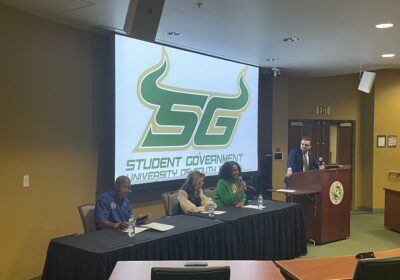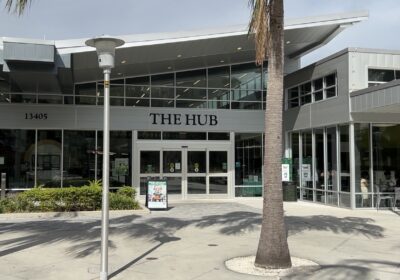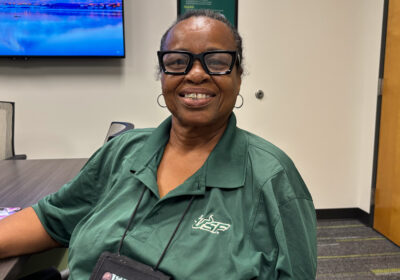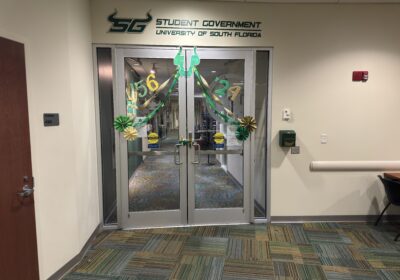USF Health experts concerned about COVID-19 variant spread in Hillsborough
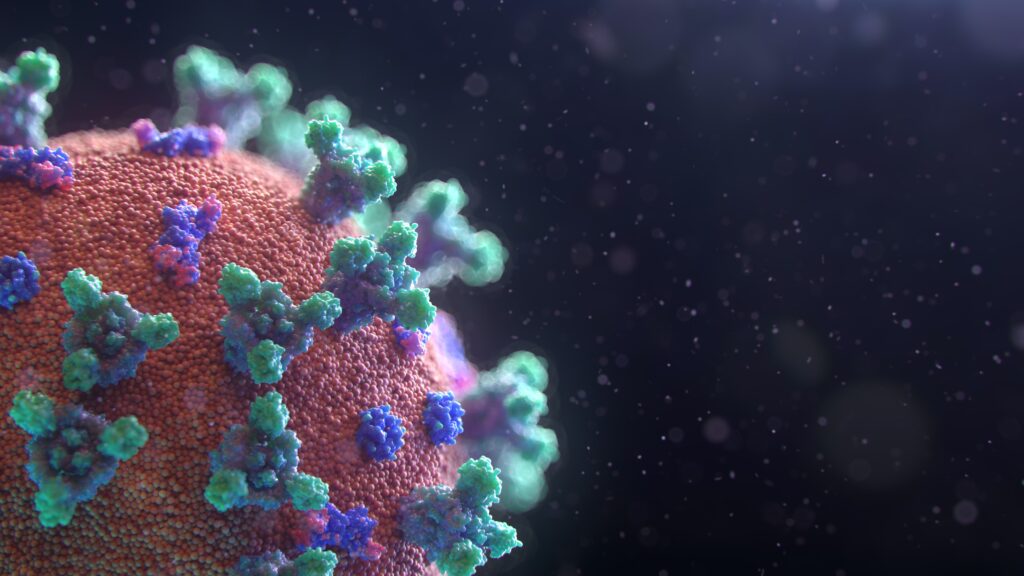
SPECIAL TO THE ORACLE/ FUSION MEDICAL ANIMATION
A strain of COVID-19, known as the delta variant, is rapidly spreading around the world, but USF Health experts said it’s tough to know right now how big of an impact the variant may have on the USF community.
Donna Petersen, dean of the College of Public Health, said the patterns of the delta variant spread are a sign to remain cautious.
“We are seeing numbers of the delta variant cases growing in Florida,” Petersen said. “While they are only increasing slowly, it is still some cause for concern because our vaccination rates aren’t that high yet.
“We’re still learning about it in real time, but it appears that people who are already vaccinated against the earlier variants are more protected. They may get infected, but they appear to get less sick.”
In Hillsborough County, a total of 20 cases of the delta variant have been detected as of June 30. Of the 20 people infected with the variant, one person died April 21, according to the Palm Beach Post.
Current vaccination efforts indicate the strain may become a larger issue in the future for the county, as 684,860 people have been vaccinated so far, or 53% of the eligible population, compared to a goal of 70%. In Florida, the variant has accounted for 2.8% of strains detected.
First identified in India in December and later detected in the U.S. in March, the strain of COVID-19 known as B.1.617.2 is spreading most contagiously in places with low vaccination rates, according to Michael Teng, associate dean of the College of Internal Medicine.
“[The delta variant] seems somewhere between 40-50% more transmissible than the alpha variant, which is still dominant in Florida,” he said. “It seems to be hitting those populations that are susceptible and that have very low vaccination rates. So right now, we’re seeing it a lot in places like Nevada, Utah, Missouri and Arkansas.”
Compared to the alpha variant, delta is a more dangerous and contagious strain, according to Teng. He said the new strain is better suited for transmitting and has potential to dominate the others.
Looking into its weaknesses, Teng said the delta strain doesn’t seem to have a lot of innovation, meaning it could be more short lived than the alpha variant due to the vaccines and technology we can now access.
As the variant continues to spread globally, it remains difficult to predict what impact it will have on a more localized scale, especially with USF. The university opened its doors for in-person classes and events June 28, and it currently plans to remain open through the fall semester.
Teng said the variant has potential to affect young people, especially college students, the hardest, but USF is continuing to closely monitor the severity of the delta variant. He said the decisions on reopening or implementing mask mandates will most likely be entirely out of the university’s grip.
“We have to follow directions from the Board of Governors, and [Gov. Ron DeSantis] has not shown any willingness to go backward to reinstate policies. If anything, he’s forced everything to move toward opening more,” he said. “So, I don’t think we’ll be allowed to return to some of the public health measures like masks and physical distancing.”
Along with plans to entirely reopen the university, Petersen said there’s no need for random on-campus testing, even with the delta variant slowly spreading.
“The numbers are growing, but they’re still pretty small,” she said. “We’re probably going to pause random testing since we’re not seeing the level of case activity that warrants random testing of the whole population. The last [positive case] we found through random testing was in April.”
While random testing may pause soon, there is a possibility it could be reinstated should the delta variant begin to rapidly spread among the community in the future, according to Petersen.
In addition to the possibility of reinstating random testing in the future, Jill Roberts, associate professor in the College of Public Health, said the university is already preparing for the worst-case scenario as a precaution.
“The USF community has massively stressed the importance of getting vaccinated, but is aware that many will pass on the opportunity,” she said. “Therefore, we are fully preparing a return to online in the fall if necessary. This, of course, can be avoided if the community is vaccinated, and I hope everyone will do so.”
Current advisories from both the World Health Organization (WHO) and the Centers for Disease Control and Prevention (CDC) contrast one another, as the former advised fully vaccinated people should continue to wear masks due to the spread of the delta variant, while the latter continues to advise masks for those who aren’t fully vaccinated.
Roberts said the difference in guidelines could be due to the differing opinions of what the future holds.
“The CDC has taken the approach to stress a return to normal that is possible with vaccination. The hope is that this will encourage more people to get vaccinated,” she said. “In contrast, the WHO is concerned about the delta variant and other highly transmissible variants, and is taking the approach to encourage everyone to continue to wear masks to stop the spread of the variants.”
Despite the confusion the contradictory advisories create, Roberts said the decision to wear a mask should be based on the severity of local COVID-19 cases.
“Fully vaccinated people should make this choice based on their own risks, assuming local spread of coronavirus is low,” she said. “If it is high, everyone should wear a mask.”
Roberts also said the decision to wear a mask should be based on each individual’s personal situation. She said that reasons to continue wearing a mask could include being medically unable to receive the vaccine, having a desire to avoid high transmissible variants like delta or wanting to avoid new and undetected variants.
Regardless of decisions made on reopening plans and health advisories from USF, Teng said the severity of COVID-19 is nothing to brush aside.
“When you’re in college, you may feel invincible and like you’ll never get sick or hurt,” he said. “This doesn’t work that way. This is something that’s attacking yourself and doesn’t care if you feel invincible.”
Although the future remains uncertain, the strongest defense Floridians have is the vaccine, according to Teng.
“This is serious for all the students out there that haven’t been vaccinated for whatever reason,” he said. “If you look at the people hospitalized for COVID, around 99% of them are unvaccinated. It’s really time to stop procrastinating.”

